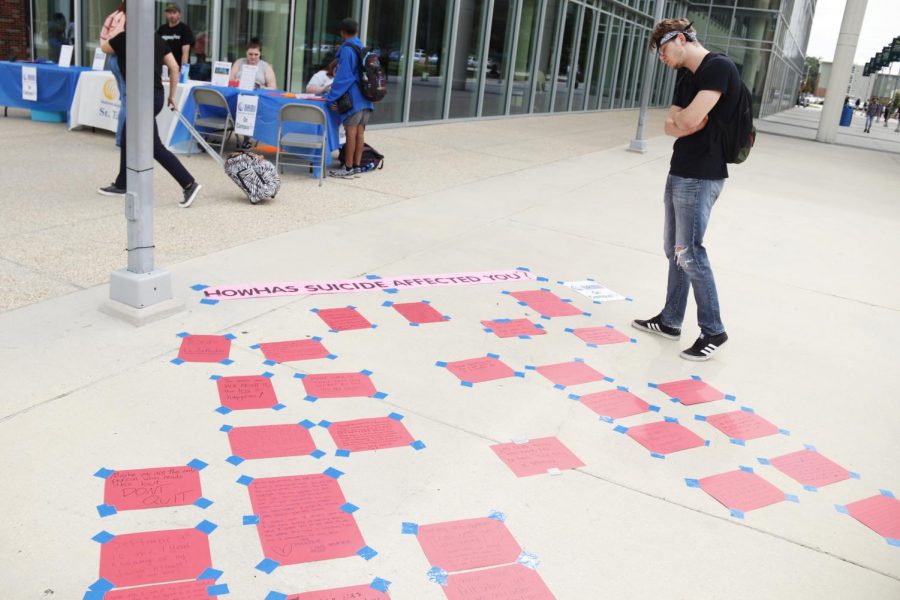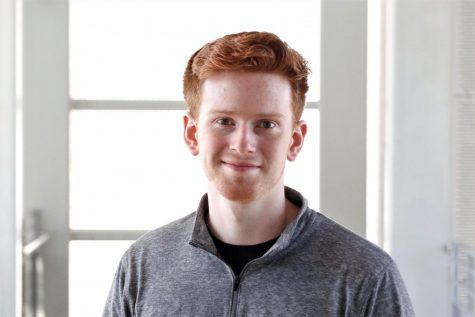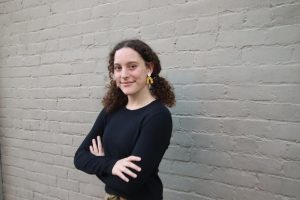NAMI starts a conversation about college suicide
Dozens of students participated in NAMI’s suicide awareness exhibit this past Tuesday.
September 14, 2018
Book sacks and shoes were scattered across the ground. Empowering stories and words of encouragement were written by students of all backgrounds. The common factor? Suicide.
The National Alliance of Mental Illness created both displays on Sept. 10 to honor National Suicide Prevention Week and to spread awareness of the ubiquity of college suicide.
Chad Cashio, president of NAMI on Campus Southeastern, stated that suicide is preventable, and a simple conversation can aid so many.
“When we don’t talk about that openly, then suicide rates increase, and people keep dying,” said Cashio.
As a part of NAMI’s display, students were encouraged to write inspirational messages that revolved around their experiences with suicide.
Cashio stated that some college students have suicidal thoughts due to the amount of stress they are put through.
“They’re often away from all of their support networks for the first time in their lives,” said Cashio. “They’re financially on their own suddenly. They’re emotionally and socially on their own suddenly. Combined with that, they’re under tremendous amounts of stress in college. So, those things lead to people feeling isolated and not knowing where to turn, not knowing what to do about it.”
According to the National Institute of Mental Health, there were 5,723 suicides committed by people between the ages of 15-24 in 2016.
Cashio reiterated that mental illness can diminish by starting a conversation.
“When you’re a kid, it’s easy to believe that there’s a monster hiding in the shadows, and the more you just look at the shadow, the bigger this monster gets,” said Cashio. “As soon as someone turns the light on, then that monster gets really small and shrinks and just totally disappears. Mental health issues can often be like that. The more we talk about them, the less power they have over us, and the more we can actually deal with them.”
Some of NAMI’s members have a mental illness, such as Cashio himself, and some are advocates who support those students with illness. Regardless, Cashio said that the most important point is that the members are peers.
“We’re not professionals,” said Cashio. “We’re not experts. We are the people.”
To follow the conversation, students can visit NAMI On Campus Southeastern’s Facebook, Twitter and Instagram pages at NAMI On Campus Southeastern, @NAMI_SLU and nami_southeastern, respectively. The organization’s email is [email protected].
Learn from others’ stories, see life from another’s shoes, and continue the conversation.










